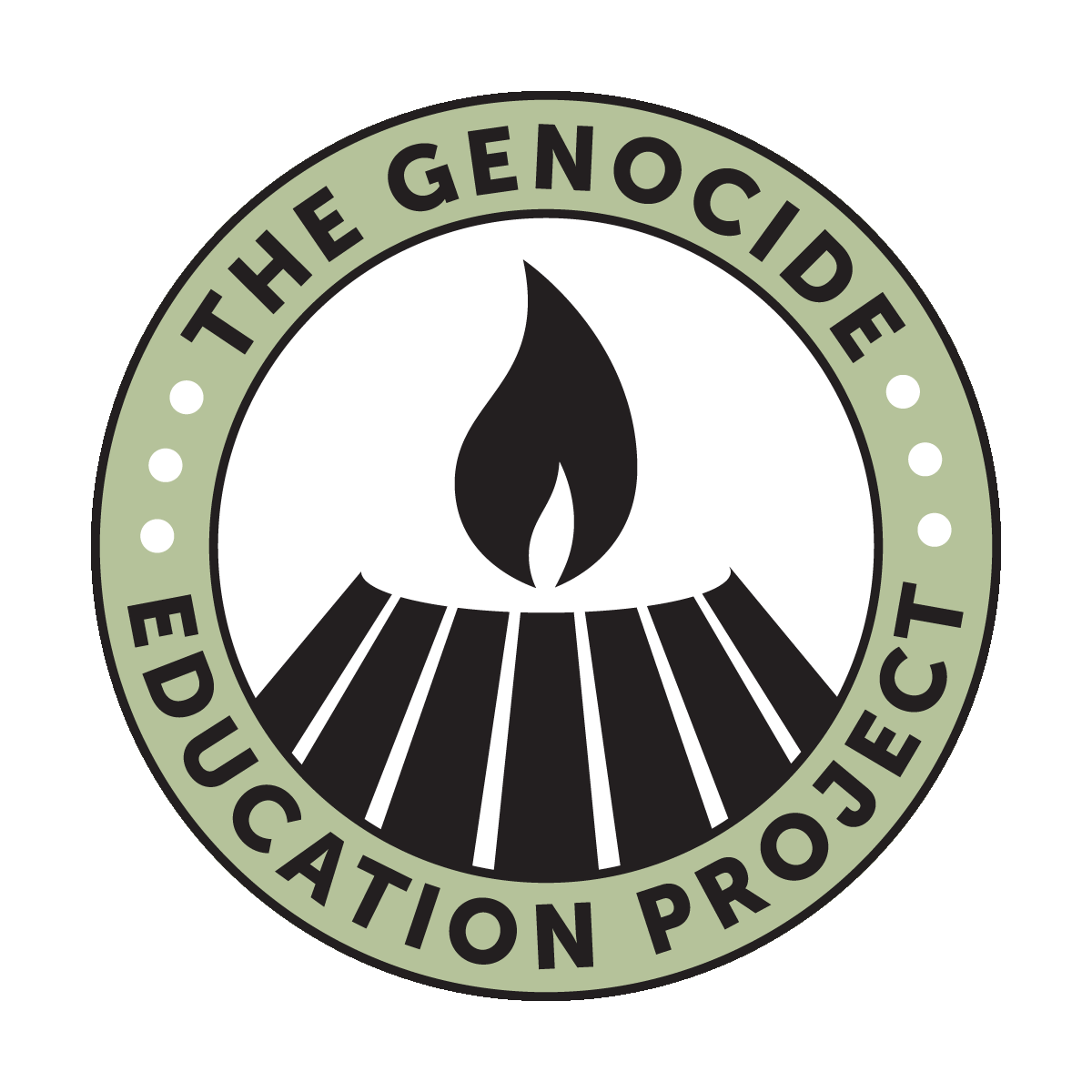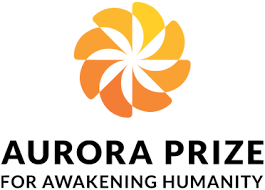Alumni of 2017
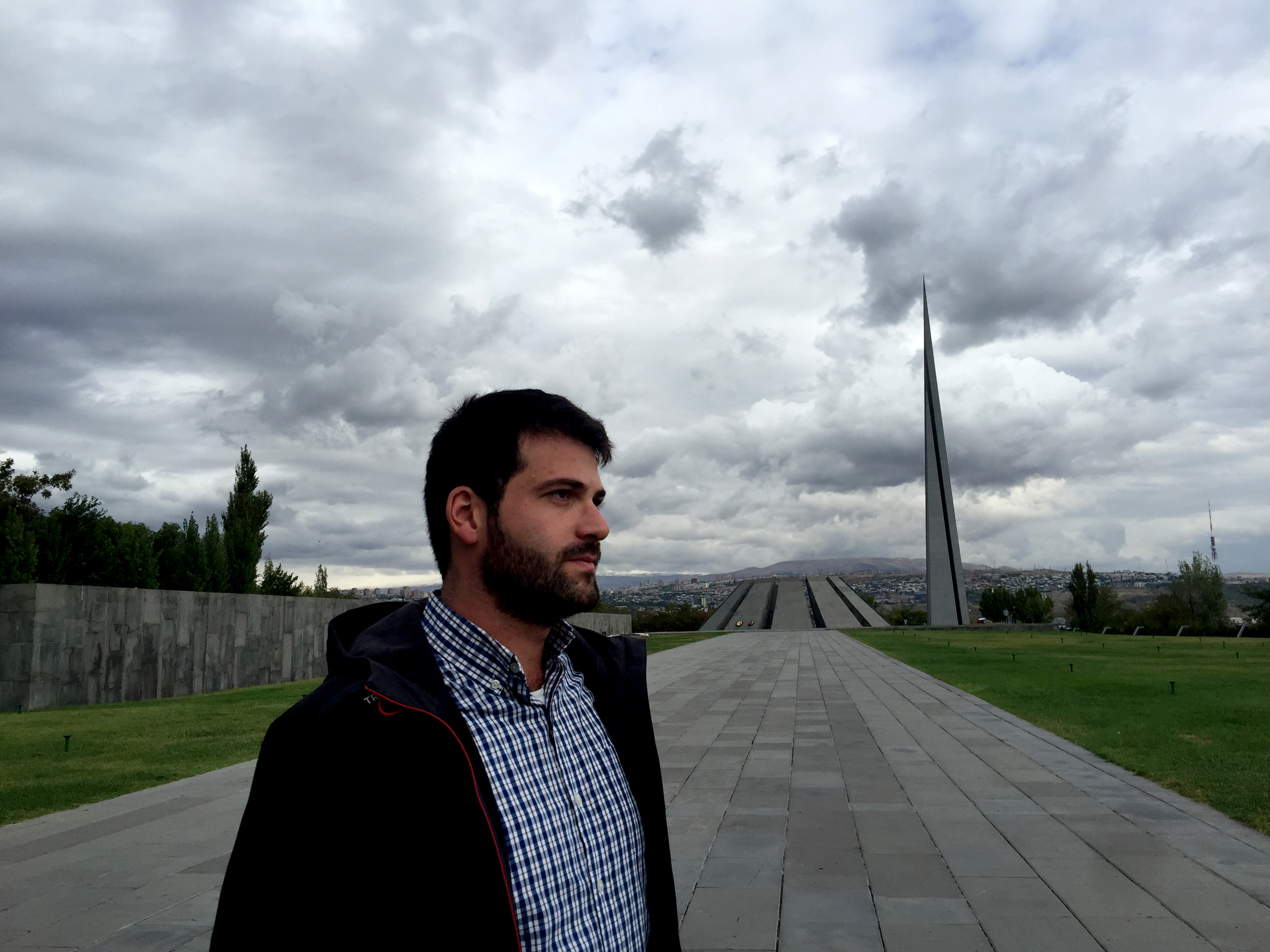 Iván Gaztañaga
Iván Gaztañaga is political scientist and M.D in International Law and International Relations (University of Granada) and expert in Middle East Studies (Hebrew University of Jerusalem) and now is completing his Ph.D in International, European and Comparative Law focused on Armenian Genocide with the following topic: “The Genocide against the Armenian people in the diplomatic and consular letters (1914-1925)”.
Publications
“150 years of International Relations Madrid-Jerusalem”, Raíces, Revista de Cultura Judía de España, nº 107, pp. ISSN: 0212-6753 (Spanish)
“The Armenian Genocide in Diplomatic Letters” Raíces, Revista de Cultura Judía de España, nº 108, pp. 85-88., ISSN 0212-6753 (Spanish)
Interview with Iván Gaztañaga
Alumni of 2016
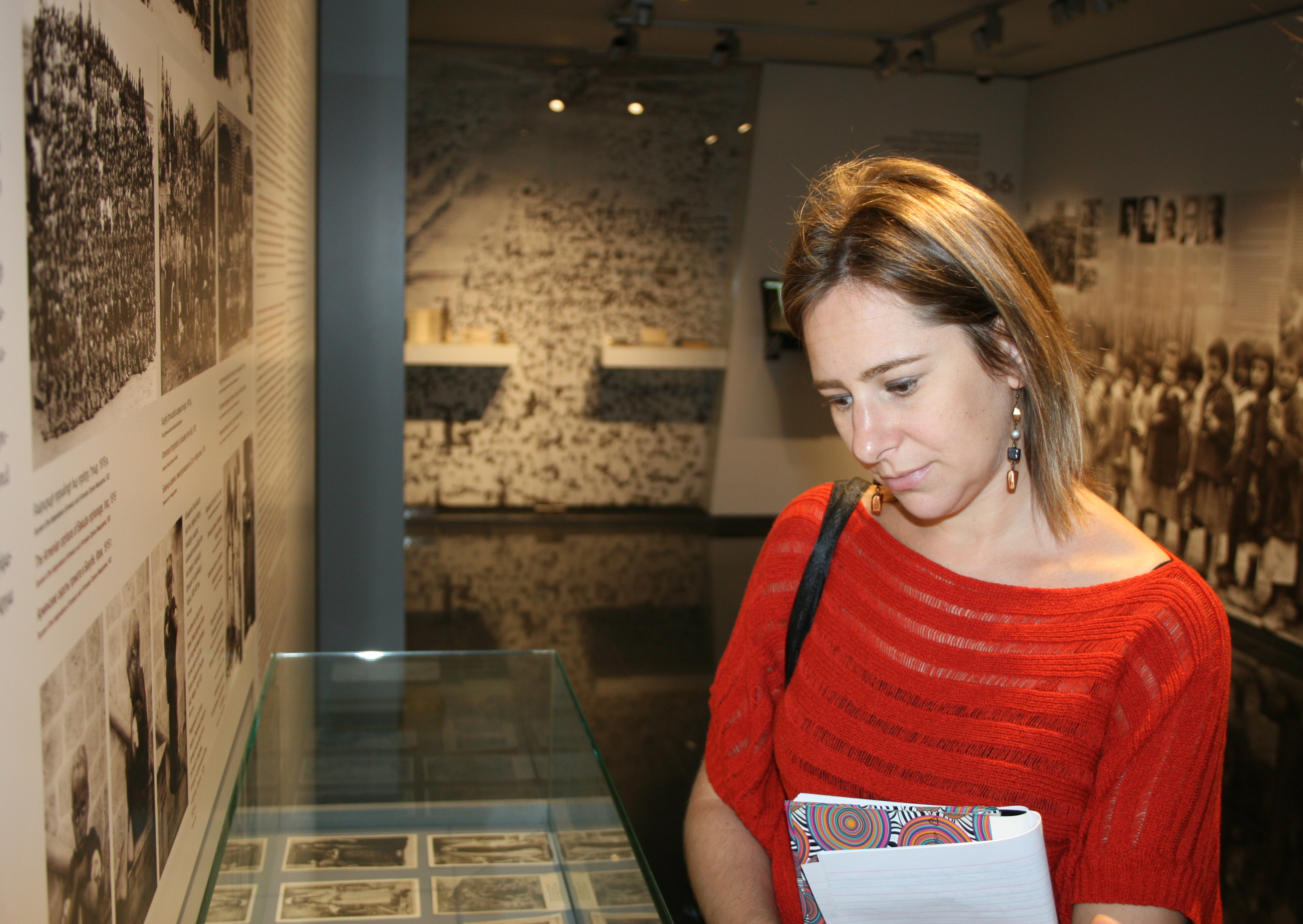 Nikki Marczak
Nikki Marczak is australian genocide scholar, an independent researcher with the Australian Institute for Holocaust and Genocide Studies (AIHGS) and member of the International Association of Genocide Scholars.
Nikki has had a presence amongst the Armenian community, notably delivering the keynote address at the Centenary of the Armenian Genocide Commemoration in Melbourne. She has a Master’s degree in Holocaust and Genocide Studies and has worked in research and policy development for many years.
She is currently working on a number of articles relating to the Armenian Genocide, including a comparative analysis of the experiences of Armenian women and the horrors currently facing Yezidi women in Iraq.
Publications
"Yazidi refugees have an urgent need for protection from genocide", 2015,
View
"Armenian genocide forgotten in ANZAC commemorations", 2015,
View
''Seeking justice for an ongoing genocide:'',
View
Armillei, Riccardo; Marczak, Nikki; and Diamadis, Panayiotis (2016) "Forgotten and Concealed: The Emblematic Cases of the Assyrian and Romani Genocides," Genocide Studies and Prevention: An International Journal: Vol. 10: Iss. 2: 98-120.
Two other forthcoming publications are:
Nikki Marczak, “A Century Apart: The Genocidal Enslavement of Armenian and Yazidi Women”, in M. Connellan and C. Fröhlich (Eds.), A Gendered Lens for Genocide Prevention, (Palgrave, 2016)
Nikki Marczak and Kirril Shields (Eds.), Genocide Perspectives V, Australian Institute for Holocaust and Genocide Studies, (Forthcoming).
Interview with Nikki Marczak
Alumni of 2015
 LARA HALADJIAN
LARA HALADJIAN is a specialized human rights lawyer. She has graduated from University of Essex with LLB Law and Human Rights and received her LLM Human Rights from University of London. Moreover she has received the Bar of Cyprus. Currently she is working on her PhD on the Recognition, Remembrance and Reconciliation with a case study on the Armenian Genocide.
Her main research is on Transitional Justice, Memory Studies and on Genocide. On her spare time she research on various aspects of human rights (such as women rights, children rights) and write human rights essays. She has worked in NGOs and has written various reports on aspects of Law and Human Rights.
Short list of publications:
“How the use of Transitional Justice (TJ) could build the relations between Greek and Turkish Cypriots after the invasion of 1974?” published in Brazilian Criminal Science Forum Editorial.
Interview with Lara Haladjian
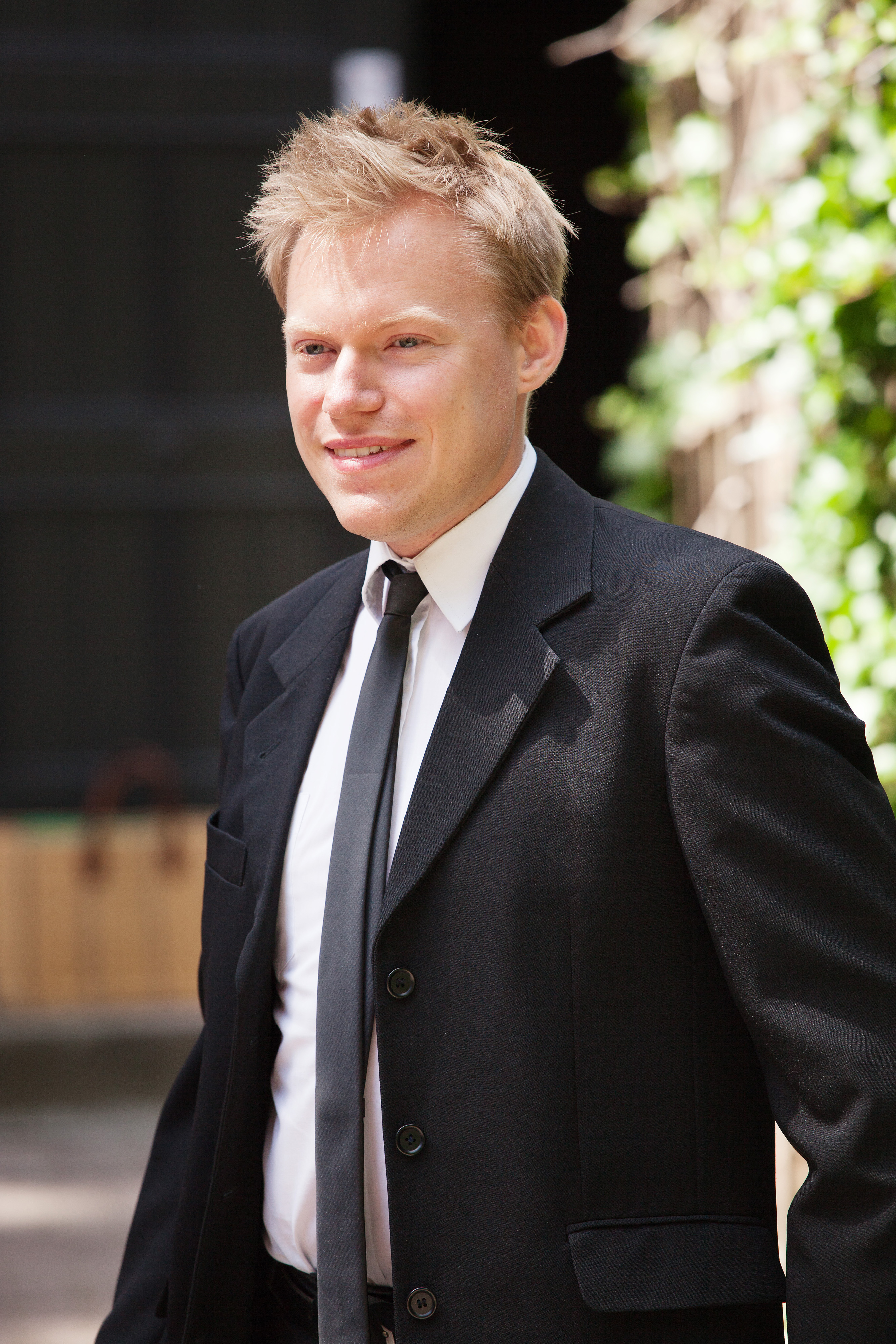 TIMOTHY WILLIAMS
TIMOTHY WILLIAMS studied Political Sciences at the University of Mannheim (Germany) and Comparative Politics (Conflict Studies) at the London School of Economics and Political Science (UK). He is currently a teaching and research associate at the Center for Conflict Studies at Marburg University (Germany) and is writing his doctoral thesis on the micro-dynamics of participation in genocide at the Free University in Berlin (Germany). Furthermore, Tim also holds a doctoral scholarship supporting his research from the Heinrich-Böll-Stiftung.
Timothy Williams is a British scholar and politician. His works deal with sociology, social psychology, history, and even the fields of anthropology and criminology. Conflict dynamics and themes of social-political conflicts are in the center of his researches. He is mainly engaged in genocide studies in macro and micro levels. He is also working on the innovative methodological approaches in studying social phenomena. He has conducted studies in Cambodia, Armenia and Thailand. He is involved in several international projects.
Short list of publications:
"The Complexity of Evil: A Multi-Faceted Approach to Genocide Perpetration", 2014, Zeitschrifft für Friedens- und Konfliktforschung 3(1):71-98
"Beyond Development and Counter-Insurgency.
Searching for a Political Solution to the Malay Secessionist Conflict
in Southern Thailand", 2011, Scholar Report. London: LSE Asia Researche Centre
The MoA-AD Debacle – An Analysis of Individuals’ Voices, Provincial Propaganda
and National Disinterest, in:
Journal of Current Southeast Asian Affairs, 29, 1, 121-144, 2011
Interview with Timothy Williams
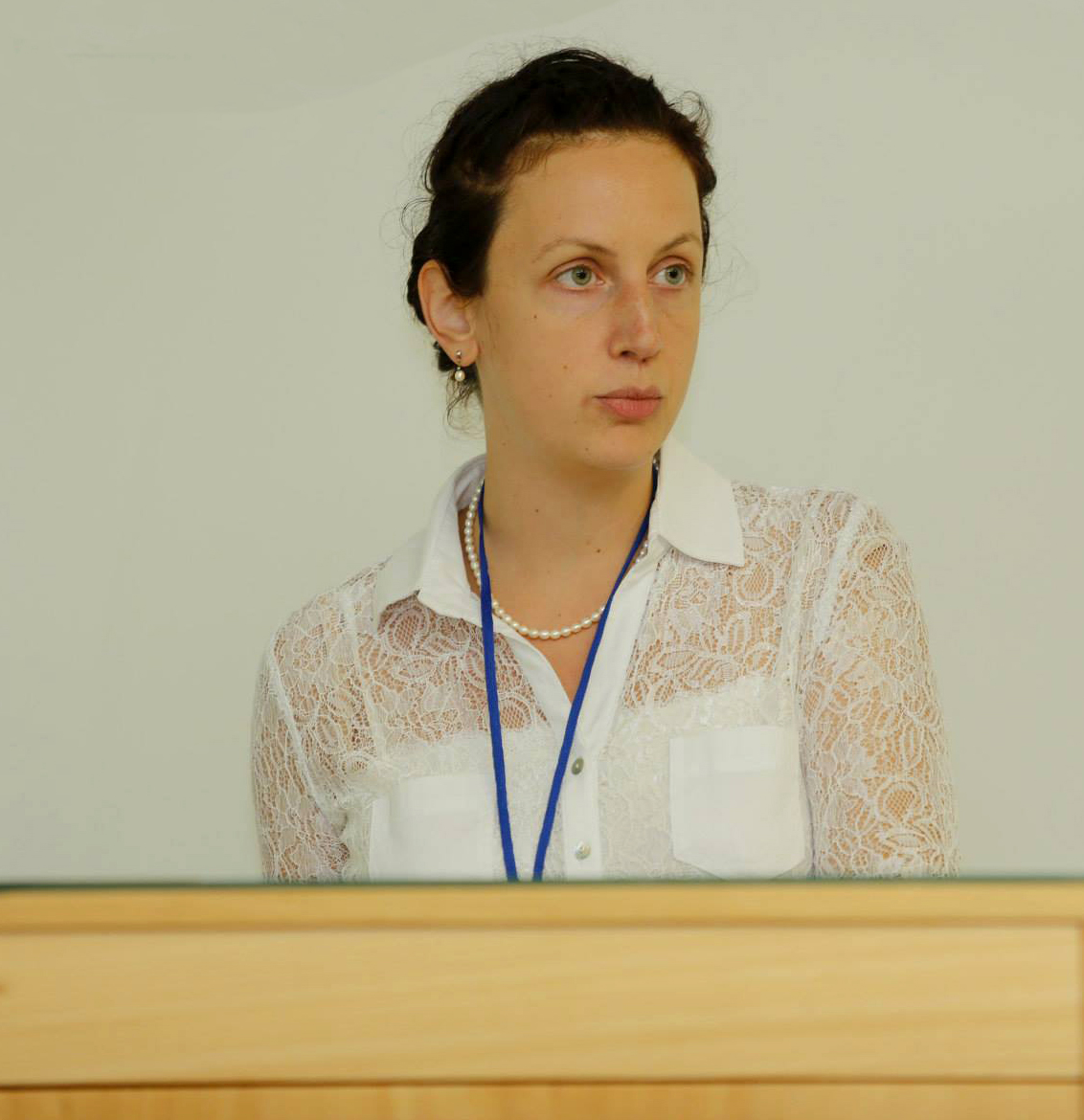 ÉVA MERENICS
ÉVA MERENICS is currently a PhD-candidate at the Interdisciplinary Doctoral School of International Relations, Corvinus University of Budapest. She spent her lecturing practice at the University of West Hungary. Her dissertation analyses social, political consequences of the Armenian genocide and their roots in individual and social psychology in various Armenian diaspora communities and the homeland. Lately she has been the only contributor in Hungary to the analysis of Hungarian responses to the 1909 Adana massacres. She was granted with the scholarship of the Ministry of Education of Hungary in 2005-2006 and conducted research in Yerevan in the frameworks of the Visegrad Scholarship Program from 2009 to 2011. She has been studying Nonviolent Communication since 2013.
Short list of publications:
„Az örmény népirtás kibeszélése kezdetének társadalmi és politikai feltételei az Örmény Szovjet Szocialista Köztársaságban” [Social and Political Preconditions of the Collective Processing of the Armenian Genocide in the Armenian Soviet Socialist Republic] in Kisebbségkutatás – Minority Studies 23/3 pp. 147-163. (Lucidus Kiadó, Budapest, 2014)
„Reports on the Massacres in Adana by Austro-Hungarian Newspapers” in Tseghaspanagitakan handes /Journal of Genocide Studies 1/1 pp. 76-91 (Kollazh, Yerevan, 2013)
„A "feltételezett" örmény népirtás: A tagadás mint bizonyíték” [The ’Alleged’ Armenian Genocide. Denial as a Proof] in: Szappanyos Melinda (ed.) 9. Országos interdiszciplináris Grastyán konferencia előadásai. pp. 306-314. (Pécsi Tudományegyetem Grastyán Endre Szakkollégium, Pécs, 2011)
Interview with Éva Merenics
Alumni of 2014
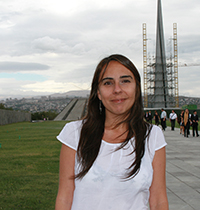 VALERIA THUS
VALERIA THUS is a current Masters student in International Law of Human Rights at University of Buenos Aires, Argentina. She holds a Specialization in Criminal Law Dept. Graduate School of Law at UBA. She works on thesis entitled " The legal antinegacionism: Reflections from a human rights perspective ". In her research she focuses on the suitability or unsuitability of punishing negationist practices, weighing the human rights at stake (freedom of speech, dignity of victims, equality as non-submission principle, among others) as well as with the question of aligning domestic legislations with international human rights law (authoritative use of IHRL). Furthermore, the analysis intends to gain insight into the performative dimension of law vis-à-vis the state of negation and the prevention of the reorganizing consequences of genocidal social practices, going deeper into their symbolic realization.
Professionally, she has worked on issues related to human rights with a strong commitment to defend them: she has participated as an independent litigator in followed public trials for the crimes against humanity committed by the civil military dictatorship in Argentina (period 1976-1983). She also served as Coordinator Areas in “Instituto Espacio para la Memoria”, decentralized government of the City of Buenos Aires agency and currently works as Coordinator of the “Memory Comission”- Superior Council of University of Buenos Aires.
Short list of publications:
“El antinegacionismo jurídico: derecho internacional vs. derecho local,” Journal Pensar en Derecho, year 2- issue 2, School of Law, University of Buenos Aires, Eudeba, pp. 81-121.
“El Estado genocida: reflexiones político–criminales en torno a la política de inmigración Europa”, Journal Estudios sobre Genocidio, Center for Genocide Studies, University of Tres de Febrero, Director: Daniel Feierstein, Volume 8, August 2013, Ed. Prometeo.
“Resistencias en torno a la calificación de genocidio en el caso argentino”, Revista de Derecho Penal y Criminología, year II- issue 2- March 2012, Ed. La Ley, Director: Eugenio Raúl Zaffaroni, pp. 69-84.
Interview with Valeria Thus
 SAMANTHA LAKIN
SAMANTHA LAKIN is a current PhD student in Political History at Clark University, USA. She holds a M.A. in Law and Diplomacy from The Fletcher School, Tufts University, and a B.A. from Brandeis University. Samantha was a Fulbright scholar from 2011-2012 in Switzerland, where she researched the rescue of Jewish children to Switzerland during World War II. She has also worked in Rwanda for the past year, conducting independent research on memorialization of genocide in Rwanda for her Master’s thesis, and serving as a Policy Officer in the Department of Research, Policy, and Higher Education at Aegis Trust and the Kigali Genocide Memorial.
Samantha has been invited to present her research on Switzerland and Rwanda at many international conferences, including the Museum of Tolerance New York, Yad Vashem in Jerusalem, the International Society of Political Psychology, and the University of London. Her research subject as a Raphael Lemkin Fellow focused on the process of recognition of the Armenian genocide, and collective memory of Armenians, as shown through commemoration periods (article forthcoming) with the title:
Memorializing Mass Atrocities and Genocide in Armenia: Perspectives from Government, Communal, and Personal Memorial Practices.
List of publications
Journal Article Submitted for Publication, “Leadership Mindsets: The Social and Political Development of the Rwandan Patriotic Front (RPF) of the Past Twenty Years,” co-authored with Jonathan R. Beloff, M.A., Journal of Social and Political Psychology (2014)
• Book Publication, Testimonies: Stories of Refugee Children Rescued to Switzerland During World War II, Swiss Embassy, Washington, D.C. (2013)
• Book Chapter Accepted for Publication, “Mobilization and Ideology behind the 1994 Rwandan Genocide” in Confronting Dehumanization, Denial, and Impunity: Genocide Prevention Lessons from Rwanda (2014)
• Chapter Contribution, “Infrastructure and Policies Regarding Refugee Children Rescued to Switzerland During World War II”, Kestenberg Archives, Hebrew University, Jerusalem, Israel (2013)
• Appendix, The Fate of Others: Rescuing Jewish Children on the French-Swiss Border by author Nan Lefenfeld (2012)
Interview with Samantha Lakin
 SUZAN ROSITA MERYEM KALAYCI
SUZAN ROSITA MERYEM KALAYCI Ph.D. student at the European University Institute (Italy) and Raphael Lemkin Fellow 2014), author of academic publications. She works on thesis entitled “The Silent Nation”.
In her research she touches upon what role has the Armenian genocide played in creating this collective singular Turkish historical consciousness, and what role can memory politics in the aftermath of genocide, massacres and atrocities play in challenging nationalist historiography, how does the – what the psychoanalytical literature terms – ‘coming-out’, the post-genocidal trauma of both the perpetrators and the victims, affect a society and the language that describes it?
Her dissertation investigates the specific historical trajectories and the origin of the Armenian Genocide denial in Turkish national history. The concept of historical silence, which is at the core of my PhD dissertation, shows that while there are simultaneously existing layers of historical memory and that they have a clear hegemonic positioning in relation to the official national discourse.
List of publications
„Die Annexionsbestrebungen der Österreicher auf den Rupertiwinkel 1945“ (Reichenhaller Stadtarchiv,1999)
„The Women’s Question in the Ottoman Empire by Charlotte Lorenz -an Analysis and Biography“ (Essay Competition for the Historical Journal Tarih Vakif, 2003)
„The Arabian Horse in the Islamic Tradition,“ essay collection for the Georg Eckert Institute (2006)
„Bonded by Exile“, Exhibition Catalogue“ (2008, co-author)
„Istanbul, the endless Bridge between East and West,“ Journal Friends of Turkey (Yale University, 2009)
„Haymatlos! Exile Turkey: Traugott Fuchs' Landscape of Reconciliation“, MA Thesis (Bogazici University, 2009)
„Turkish Government Policy towards German Intellectual and Academic Exiles during the years 1933
1945“, Mphil Thesis (Cambridge University, 2010)
„Formen des Erfahrung und Aneignung des Exils-Traugott Fuchs eine Lebensperspektive,“ Conference Paper, Jahrestagung des Gesellschaft für Exilforschung, 12.-14. March 2010
„Dolambaçlı Öyküler: Bursa’da At Yetiştiriciliği ve Önemli Bir Alman Misafir“, Bursa ve Almanlar, Bursa
Belediye Yayinlar, 2012
“Dolambaçlı Öyküler: 1930’larda Türk-Alman İlişkilerinin Mikrokozmosu Olarak Bursa“, Bursa ve Almanlar, Bursa Belediye Yayinlar, 2012
“Dolambaçlı Öyküler: Uludağ“, Bursa ve Almanlar, Bursa Belediye Yayinlar, 2012
Interview with Suzan Rosita Meryem Kalayci
Alumni of 2013
 CHARLES LADERMAN
CHARLES LADERMAN is a PhD student at the University of Cambridge. He works on thesis
entitled «Sharing the Burden? The Armenian Question and the Search for a New World Order, 1894-1927». Paper looks at an Anglo-American project to share the burden of global governance at the turn of the twentieth century; beginning in the mid 1890's, in response to the massacre of Armenian Christians in the Ottoman Empire, and culminating in the debate over an American mandate for the Armenian provinces of the collapsing Empire after the First World War.
Short list of publications
• The Invasion of America by an Englishman: E.D. Morel and the Anglo-
American Intervention in the Congo in William Mulligan (ed.) The Politics
and Culture of Anti-Slavery Movements in Global Perspective (Palgrave, 2013)
• Sharing the Burden: The Armenian Question and the Search for a New World
Order in National History Center, Revisiting the Progressive Era: New Perspectives on
the History of the United States in the Early 20th Century, (Oxford University Press,
2014 forthcoming)
• The American Solution to the Eastern Question, 1918-1920, submitted to
Diplomatic History
• Playing the Game of Civilized Mankind: Theodore Roosevelt and the
Motivations behind American Diplomacy During the Russo-Japanese
War, 1904-1905 prepared in pre-submission in draft for submission to
Diplomacy and Statecraft
 FRANCESCA PIANA
FRANCESCA PIANA is a post-doctoral fellow of the Swiss National Science Foundation. From November 2013, she will be based at the History Department of Columbia University and then at the History Department of Ann Arbor (Michigan). Francesca received a PhD with distinction in August 2012 for a dissertation entitled “Towards the International Refugee Regime. Humanitarianism in the Wake of the First World War” from the Graduate Institute of International and Development Studies in Geneva (Switzerland). Her PhD was awarded the Pierre du Bois Prize for 2012.
Francesca studies the Armenian Genocide through the lenses of Western female missionaries, relief workers, and international organizations involved in humanitarian assistance. While working at the Armenian Genocide-Museum Institute, Francesca collected documents for her post-doctoral research, which is entitled “‘Parallel Live’: Women, Humanitarianism, and Imperialism”.
Alumni of 2012
 DAVID LOW
DAVID LOW, a PhD research student & teaching assistant of Courtauld Institute of Art, History of Art faculty, Somerset House, London. Academic Degrees: MA Hons, University of Glasgow, MA, with Distinction, Courtauld Institute of Art.
David Low is interested in the Armenian Genocide and photographic documents in times of war, specifically: photographic documents of the Armenian Genocide; and photographers in exile during the Second World War. His research outline is "Photographic documents of the Armenian Genocide". He has received several academic awards, including Courtauld Harold Hyam Wingate Scholar, UK Arts & Humanities Research Council award holder and speaks English, German, Spanish and a working knowledge of Armenian.
Interview with the second winner of the Raphael Lemkin annual scholarship, David Low
The second winner of the Raphael Lemkin annual scholarship announced
Alumni of 2011
 REBECCA JINKS
REBECCA JINKS recently completed her PhD at the University of London, entitled «Representing Genocide: The Holocaust as Paradigm». She is currently finalising research on an article about the humanitarian rescue of Armenian women from Moslem homes after the genocide, begun whilst holder of the Raphael Lemkin Scholarship. Her next project will focus on the links between urban misintegration and urban destruction during the breakup of the former Yugoslavia.
Short list of Publications:
• Holocaust Memory and Contemporary Atrocities: The IWM’s Holocaust Exhibition and Crimes Against Humanity Exhibition’ in Olaf Jensen and Caroline Sharples, eds., Britain and the Holocaust, part of the Holocaust and its Contexts series with Palgrave Macmillan (Palgrave, November 2013).
• ‘Genocide, Memory, and Memorialisation’ in Routledge History of Genocide, eds. Cathie Carmichael and Richard Maguire (Routledge, forthcoming 2014).
•‘Where Memory Stands?: Thinking Comparatively about Genocide Memorialisation’. Accepted for publication in Journal of Genocide Research special issue on genocide memorialisation, subject to peer review.
The first winner of the Raphael Lemkin annual scholarship 2011 announced



